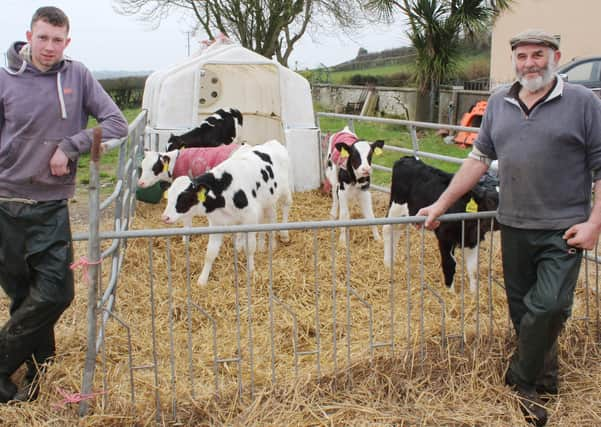Infrastructure grants a priority


“Our current plan takes us through to the end of this month,” explained LMC Chief Executive Ian Stevenson
“I can confirm that all of the strategic targets contained within the current plan have been achieved. However, it required more than a little tweaking along the way, particularly given the impact of the Covid-19 pandemic over the past 12 months.
Advertisement
Advertisement
“In order to help us plan ahead LMC representatives have met with colleagues from a range of stakeholder bodies within the red meat sectors, in order to gauge their priorities for the future and the role the Commission can play in helping these to be obtained.”
The organisations canvassed by the Commission have included the Ulster Farmers’ Union, the Northern Ireland Meat Exporters’ Association, the National Beef Association, the National Sheep Association and the Northern Ireland Agricultural Producers’ Association.
Ian continued: “One of the most significant outcomes from these meetings was the high level of confidence expressed by the various stakeholder organisations in the role being played by the Commission within the beef and sheep sectors at the present time and how this can be developed for the future.”
Referring to some of the issues that will become priorities for beef and lamb over the coming years, Ian said that both the farming and processing industries must be assured of a level playing field when it comes to the development of future infrastructure.
Advertisement
Advertisement
He added: “Extensive grant support of this nature is already planned for Great Britain and the Republic of Ireland is already well down the road in this regard. Last year saw all of Northern Ireland’s red meat processors invest £millions in Covid-19 mitigation measures.
“All of this money had to be found from each company’s own resources. No support was made available by government to underpin these strategically important commitments.
“Looking ahead, Northern Ireland’s red meat companies will have no option but to invest significantly in their facilities to embrace new technologies and innovations, in order to remain competitive on an international stage.
“Government must commit to supporting these critically important infrastructure-related developments.”
Advertisement
Advertisement
Meanwhile, Strangford dairy farmer Cavan Johnston is calling for government to provide improved levels of support for young people wishing to develop a career in production agriculture.
Currently milking 220 cows, he recently entered into a share farming arrangement with former College of Agriculture, Food and Rural Enterprise (CAFRE) student Matthew Adams. The agreement was facilitated by the Land Mobility Programme.
Cavan added: “I am conscious of the fact that young people like Matthew find it very difficult working with the likes of the banks when it comes to getting the finance they need to invest in new businesses.
“The banks have to change their attitude in this regard. But there is also a need for government to step in and provide young people like Matthew with the support they need to develop sustainable careers for themselves.
Advertisement
Advertisement
“If the business plan is good enough and the people involved have the ability and commitment to make it work, then government should also play its part supporting these farm development opportunities.”